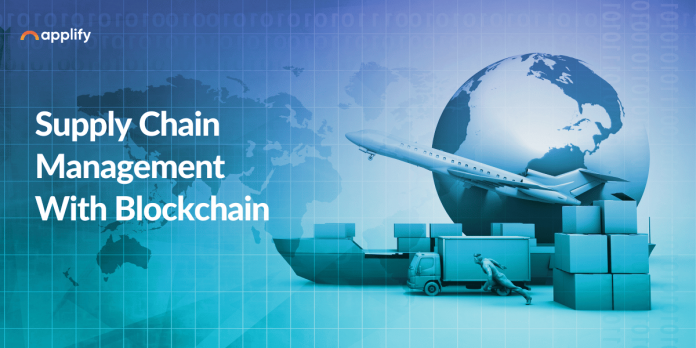The blockchain supply chain is an emerging technology that combines blockchain technology with supply chain management. It creates a secure, transparent, and efficient system for managing the movement of goods and services from their origin to their destination.
How is the Blockchain supply chain useful?
Different parties, such as manufacturers, distributors, retailers, and customers, transfer goods and services in a traditional supply chain. Each party in the supply chain maintains its own records of transactions, which can lead to discrepancies and inefficiencies. The lack of transparency and traceability in the supply chain can make it difficult to track the origin of products and identify potential risks. These potential risks may include fraud, counterfeiting, or human rights violations.
Blockchain supply chain addresses these challenges by creating a decentralized and immutable ledger of all transactions in the supply chain.
This ledger is shared among all participants in the supply chain network. As a result, it produces a tamper-proof and transparent record of all transactions and goods movements.
As a result, supply chains can improve transparency, efficiency, and security in the whole network.
1. Transparency
Smart contracts are a key feature of the blockchain supply chain. They are self-executing contracts that enforce the terms and conditions of an agreement between parties. Parties in a supply network can use smart contracts to automate the transfer of goods and services.
Additionally, smart contracts help in holding each other accountable for their obligations. For instance, a smart contract can automatically release payment to a supplier upon the delivery of goods to the customer.
2. Improved efficiency
The blockchain supply chain has the potential to improve the efficiency of the whole network.
It can do so by reducing the need for intermediaries and manual record-keeping. In a blockchain supply chain, each transaction is recorded instantly. As a result, it creates an accurate and transparent record of all movements of goods and services. This can reduce the need for manual record-keeping and reduce the risk of errors and discrepancies in the supply chain. Similarly, this is how blockchain for trade finance can create a transparent record of all transactions.
3. Increased security
The blockchain supply chain can increase the security of the network by reducing the risk of fraud and counterfeiting. With this implementation, each transaction is verified by the network of participants, ensuring that all transactions are valid and authentic. This can reduce the risk of fraud and counterfeiting in the supply chain, as each transaction is traceable and auditable.
Security is one of the main reasons why blockchain technology in banking sector is being implemented.
Use Cases & Challenges of Blockchain supply chain

Some potential use cases for blockchain supply chains include tracking the origin and movement of food products to improve food safety, tracking the authenticity of luxury goods to prevent counterfeiting, and tracking the supply and distribution of pharmaceuticals to prevent the sale of counterfeit or expired drugs.
Some challenges still need to be addressed despite the potential benefits of the blockchain supply chain. One of the main challenges is the interoperability of different blockchain networks and platforms, as different networks may have different protocols and standards. Moreover, the adoption of a blockchain requires collaboration and cooperation among different parties in the whole network, which can be difficult to achieve in practice.
Conclusion
We aspire that this brief article provides you with a better understanding of the potential of blockchain supply chains to revolutionize the management of supply chains. It can improve the transparency, efficiency, and security of global trade.
By creating a shared, immutable, and transparent record of all transactions and movements of goods and services, Web 3 solution can improve supply chain management and reduce the risk of fraud and counterfeiting.









